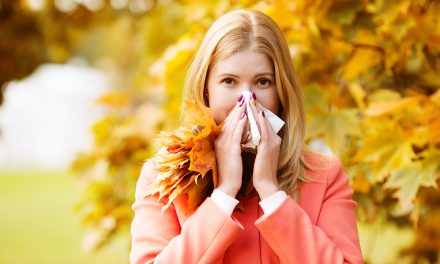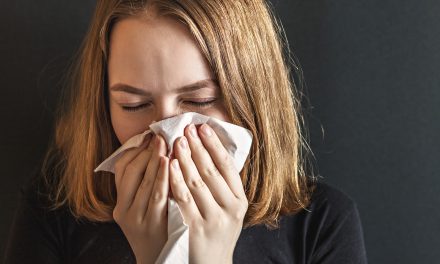Experiencing allergies at night can be frustrating and disrupt a good night’s sleep, affecting your daily life. Allergy symptoms tend to worsen at night due to a combination of biological factors and environmental triggers. Dust mites, mold, and pet dander are commonly found in bedrooms, making it harder to breathe and rest comfortably. Lying down can also make nasal congestion worse, contributing to more intense symptoms during the night.
There are also natural body rhythms at play. The body’s production of cortisol, a hormone that helps manage inflammation, decreases at night, potentially leading to more pronounced allergy symptoms. This is why some people find themselves waking up with itchy eyes or a runny nose even if they felt fine during the day.
Addressing nighttime allergies may involve making changes in the bedroom environment and daily habits. Limiting exposure to allergens such as dust and pollen and choosing hypoallergenic bedding can help. Understanding these influences can guide better management of allergy symptoms, ensuring a restful night’s sleep.
Key Takeaways
- Nighttime allergies can be due to bedroom allergens and biological rhythms.
- Lowered cortisol levels at night can intensify symptoms.
- Reducing allergen exposure in the bedroom can improve sleep quality.
Understanding Allergies
Allergies are a common condition that arises from an immune response to certain substances. Various allergens, such as pollen and dust mites, can trigger symptoms that worsen at night.
Definition of Allergies
Allergies occur when the immune system reacts to substances that are usually harmless to most people. These substances are called allergens. When exposed, the body produces antibodies, leading to reactions like sneezing and itching.
In allergies, the immune system mistakes allergens such as pollen, mold, or pet dander as threats. This triggers symptoms like stuffy noses and itchy eyes. Allergies can be seasonal, like those from pollen, or persist year-round due to dust mites or pet dander.
Common allergy symptoms include sneezing, runny nose, and itchy eyes. Allergies can affect daily life, causing discomfort and impacting sleep quality. While many people experience them, severity can vary, leading to mild irritation or significant health issues for some.
Common Allergens Triggering Nighttime Symptoms
Certain allergens are notorious for causing nighttime allergy symptoms. Pollen, which is more prevalent during specific seasons, can enter homes through open windows. Dust mites thrive in bedding, making them prominent allergens at night.
Pet dander is another trigger, especially in homes where pets are allowed in bedrooms. Mold can grow in damp areas, attracting those sensitive to it. These allergens often cause symptoms that disrupt sleep.
Managing nighttime allergies involves reducing exposure to these triggers. Keeping windows closed during pollen season and using air purifiers can help. Regular cleaning and changing bedsheets can reduce dust mites. Simple lifestyle changes can significantly improve nighttime allergy symptoms.
Biological Mechanisms
Allergies can worsen at night for a number of biological reasons. The body’s internal clock, known as circadian rhythms, and natural inflammatory processes during sleep play significant roles in nighttime allergy symptoms.
Circadian Rhythms and Allergy Symptoms
The body’s circadian rhythms are 24-hour cycles that help regulate sleep and bodily functions. These rhythms affect various hormones which can influence allergy symptoms. For instance, the body’s natural steroid levels, which help control inflammation, tend to be lower at night. This can lead to increased allergy symptoms like nasal congestion and sneezing during nighttime. Moreover, the change in posture from upright to lying down can also exacerbate congestion, making it more difficult to breathe. Nighttime also brings different environmental allergens indoors, which affects sleeping conditions.
Inflammatory Responses During Sleep
During sleep, the body engages in various repair processes including immune responses that can influence allergies. The immune system’s inflammatory responses can be stronger at night, leading to increased allergy symptoms. This is partly due to cytokines, proteins that mediate and regulate immunity and inflammation, as they are more active during periods of rest. Increased cytokine activity can contribute to heightened sensitivity to allergens. Hormonal changes during sleep may also increase inflammation, which can intensify symptoms such as itchy eyes and a runny nose. Understanding these processes highlights why some people experience worsening allergy symptoms when they go to bed.
Environmental Factors
Environmental factors play a significant role in why allergies appear worse at night. These factors often include the presence of common allergens within the bedroom and the overall quality of indoor air and ventilation.
Bedroom Allergens
Bedrooms can harbor many allergens, which might worsen symptoms during the night. Dust mites are a common culprit. They thrive in mattresses, pillows, and soft bedding. Regularly washing bedding in hot water and using allergen-proof covers can minimize exposure.
Another common concern is pet dander. If pets share the bedroom or bed, their dander can accumulate in the sleeping area. Limiting pets’ access to the bedroom can help reduce this exposure.
Additionally, mold can become a problem, especially if there’s high humidity. Checking for mold in hidden areas like behind wallpapers or under carpets is recommended.
Indoor Air Quality and Ventilation
The quality of indoor air and how well a room is ventilated can influence allergy symptoms. Poor air circulation can trap allergens like pollen and dust inside the home, leading to increased exposure at night. Regularly opening windows for fresh air, or using air purifiers with HEPA filters, can enhance air quality.
Using an air conditioner with a clean filter can also help reduce humidity and filter out allergens. However, it’s important to maintain and clean these systems regularly to prevent them from becoming sources of allergens themselves.
Inadequate ventilation may also increase exposure to household chemicals, which can act as irritants. Ensuring proper ventilation in areas where these chemicals are used can further improve air quality.
Lifestyle Considerations
Managing allergies at night often involves changes in daily habits. Two critical factors include the way one sleeps and what they do before going to bed. Addressing these can help reduce allergen exposure and improve sleep quality.
Sleeping Position and Allergy Symptom Intensity
The position a person sleeps in can significantly impact allergy symptoms. Lying flat may increase congestion as it allows fluids free passage to the head. Elevating the head, using an extra pillow or an adjustable bed, can help reduce this fluid buildup in nasal passages.
Side sleeping may also aid in keeping airways clearer. It’s important to ensure that the bedding is clean and hypoallergenic to avoid reactions to dust mites or pet dander. Regular washing of sheets in hot water is recommended.
Mattress covers designed to block allergens can be beneficial too. They create a barrier against dust mites and other potential irritants. Clean, breathable materials for pillows and blankets also support a healthier sleeping environment.
Pre-Sleep Routines and Allergen Exposure
Pre-sleep habits can greatly influence nighttime allergen exposure. Showering before bed helps rinse away pollen and allergens clinging to hair and skin. This simple routine reduces the amount of irritants carried into the bed.
Keeping windows closed and using air purifiers with HEPA filters can further limit allergen exposure. Reducing clutter in the bedroom eliminates dust-trapping surfaces, while regular vacuuming and dusting keep potential allergens at bay.
It’s also advisable to keep pets out of the bedroom. They often carry pollen and dander which may worsen symptoms during sleep. These steps, among others, make nighttimes more comfortable for allergy sufferers.
Management Strategies
Managing nighttime allergies involves a combination of targeted approaches. Key strategies include the use of medications at specific times, investing in hypoallergenic bedding, maintaining a clean home environment, and considering long-term treatments like allergy shots. Addressing each of these areas can help reduce symptoms and improve sleep quality.
Medications and Timing
For many individuals, medications can offer significant relief from allergy symptoms at night. Antihistamines are commonly used to control sneezing, itchy eyes, and nasal congestion. It’s crucial to use these at a time that maximizes their effectiveness during the night. Non-drowsy formulations can allow for daytime usage, while those that cause drowsiness might be preferable for nighttime use.
In addition to antihistamines, nasal sprays containing steroids or decongestants can be helpful. These sprays work by reducing inflammation and clearing nasal passages, offering relief from symptoms that worsen in the evening. Consulting with a healthcare provider can help tailor the timing and type of medication to individual needs.
Bedding and Hypoallergenic Products
Allergens like dust mites often live in bedding and mattresses, making it important to choose hypoallergenic options. Mattress and pillow covers specifically designed to block allergens can be a beneficial investment. These products prevent dust mites and other irritants from settling in bedding materials.
Washing bedding regularly, ideally in hot water, can further reduce exposure to allergens. It is also beneficial to replace pillows every couple of years and select those made from synthetic materials, which are less likely to harbor allergens compared to natural fibers.
Home Cleaning Practices
Regular cleaning routines play a crucial role in minimizing allergens indoors. Vacuuming with a HEPA filter can effectively reduce dust, pet dander, and other allergens. Carpeting and rugs are often traps for allergens, so consider limiting their use or cleaning them frequently.
Dusting surfaces using damp cloths or specialized dusters helps in capturing, rather than spreading, allergens. Air purifiers equipped with HEPA filters can also improve indoor air quality by removing airborne particles that may trigger allergies. Ensuring adequate ventilation can further help by reducing the concentration of indoor allergens.
Allergy Shots and Long-Term Solutions
For those with persistent allergies, allergy shots (immunotherapy) offer a long-term solution. These injections work by gradually desensitizing the immune system to specific allergens. Over time, this can significantly lessen the intensity of allergic reactions, including those at night.
Undergoing immunotherapy requires a commitment to regular injections over several years, typically starting with frequent doses that become less frequent over time. Speaking with an allergist can help determine if this option is suitable and which allergens should be targeted for optimal results.
The Role of Healthcare Providers
Healthcare providers play a crucial role in managing nighttime allergies. They offer personalized advice tailored to individual needs. This can include identifying specific allergens and recommending suitable treatments.
Providers also guide patients on effective use of medications. They may suggest antihistamines or nasal sprays to minimize symptoms. This professional advice helps patients use medications safely and effectively.
Consulting a healthcare professional is essential if over-the-counter products don’t work. They can offer specialized tests and treatments. In cases where common remedies fail, referrals to specialists may be given for further evaluation.
Allergy clinics provide focused expertise on managing symptoms. They offer advanced testing and tailored solutions to improve sleep quality. This specialized support can make a significant difference in a patient’s daily life.
Steps they might recommend include:
- Allergy Testing
- Treatment Plans
- Ongoing Monitoring
Healthcare providers ensure that patients have access to the best possible care. This includes exploring lifestyle changes to reduce allergen exposure, potentially easing nighttime symptoms.
For more information, individuals can visit allergy-focused resources such as Northeast Allergy or consult with specialized clinics mentioned in resources like Harley Street ENT. These resources provide valuable insights and professional guidance.
Preventative Measures and Daily Habits
People often struggle with allergies worsening at night, but certain daily habits can help manage and reduce symptoms. Regularly cleaning living spaces is crucial. Dust, pet dander, and mold can build up, triggering allergies. Frequent vacuuming and dusting can keep these irritants in check.
Consider using hypoallergenic bedding. This can help reduce the exposure to dust mites. Changing pillowcases and sheets weekly can also make a difference. Keeping windows closed, especially during high pollen seasons, can prevent outdoor allergens from entering the home.
Air purifiers with HEPA filters are valuable tools. They can remove allergens from the air, providing a cleaner environment. Especially in bedrooms, these devices can offer relief while sleeping.
Adopting a nightly shower routine can help too. Showering before bed removes pollen and other allergens from the skin and hair. This step can keep them from transferring to bedding.
Practicing good sleep posture is important. Lying on one’s back with an elevated head can aid in reducing congestion. Using extra pillows might help maintain this position comfortably.
Regularly replacing HVAC filters in the home is another effective step. Filters should be changed every three months, or more often depending on the environment. This can help ensure that the air circulating inside the house is as clean as possible.
By integrating these habits into daily life, individuals can better manage their nighttime allergies and improve their overall comfort.
Frequently Asked Questions
Allergies can worsen at night due to a variety of reasons. Understanding the triggers and how to manage symptoms can help in easing discomfort and ensuring a restful night’s sleep.
How can one alleviate nighttime allergy symptoms?
To reduce allergy symptoms, individuals can keep windows closed to prevent outdoor allergens from entering. Using an air purifier in the bedroom and washing bedding frequently can also help. Avoiding pets on the bed and taking allergy medications before sleep may reduce symptoms.
What causes an increase in allergy symptoms during the night?
Nighttime allergens such as dust mites and pet dander contribute to increased symptoms. These can accumulate in bedding and furniture, making nighttime difficult for allergy sufferers. Additionally, laying down can cause nasal congestion to worsen.
Are there specific plants that release pollen in the evening affecting allergies?
While most plants release pollen during the day, some can release it in the evening or at night. Those with pollen allergies might experience symptoms if near such plants in the nighttime. It is helpful to know which plants are nearby, especially during allergy season.
Why do some people only experience allergies at night?
Nighttime exposure to allergens within the home, like mold, dust, or pet dander, can lead some people to only experience symptoms at night. Their exposure during the day might not be as significant, or their symptoms may not manifest until they lie down to sleep.
Can the position of your body during sleep impact allergy severity?
Yes, the sleeping position can influence allergy symptoms. Laying flat can lead to nasal congestion as mucus builds up in the nasal passages. Elevating the head with pillows might help reduce congestion, thereby improving breathing during sleep.
What might trigger a sudden allergic reaction at night?
Sudden reactions can be triggered by new allergens introduced to the environment, like fresh flowers or laundry detergents. Changes in humidity or temperature, which affect dust mite populations, can also contribute to sudden nighttime allergies. Identifying and removing these triggers is essential for managing reactions.












